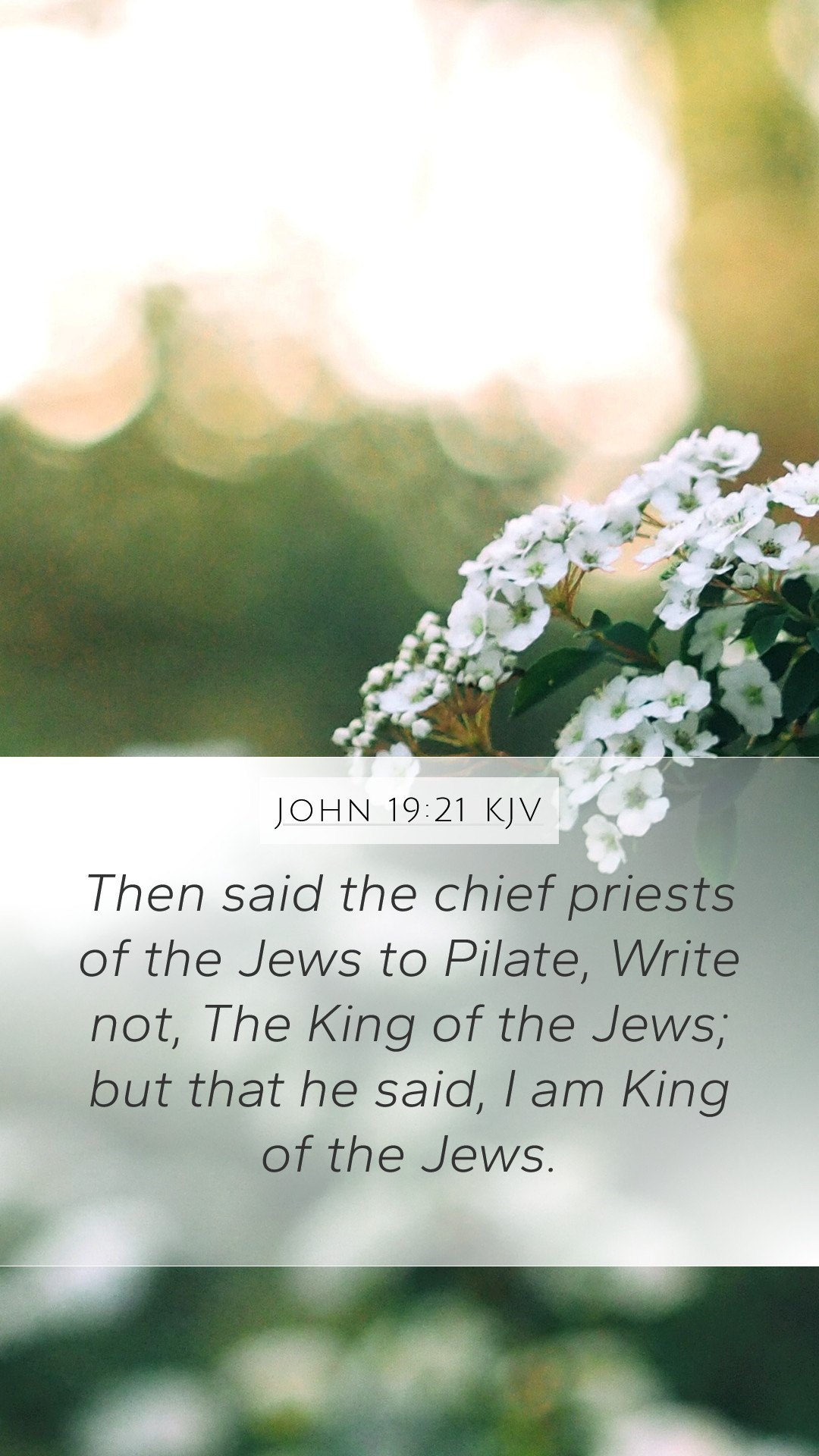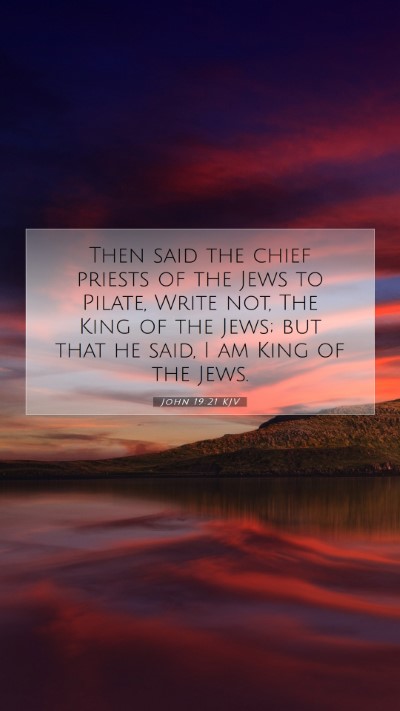Understanding John 19:21: A Comprehensive Commentary
John 19:21 states, "Then said the chief priests of the Jews to Pilate, Write not, The King of the Jews; but that he said, I am King of the Jews."
This verse reveals the tension and conflict between the Jewish religious leaders and the Roman authority during the trial of Jesus. In the context of John’s narrative, this moment underscores the rejection of Jesus' kingship by the Jewish leaders, who fear the implications of acknowledging Jesus as the Messiah.
Contextual Overview
The overarching context of John 19 involves the final moments leading up to Jesus' crucifixion. The verse reflects the Jewish leaders’ desperation to suppress any claims of Jesus’ kingship, which they believed could incite insurrection against Rome. The insistence on changing the wording of the inscription above Jesus’ cross reveals their unwillingness to accept the truth of who Jesus was.
Key Themes
- Authority and Kingship: This verse deals with the authority of Jesus. The Jewish leaders deny His divine kingship, attempting to manipulate the narrative surrounding His death.
- Rejection of the Messiah: The rejection by the leaders represents the broader Jewish rejection of Jesus as the messianic figure prophesied in their scriptures.
- Political Manipulation: Their request to change the inscription exemplifies the intersection of religious beliefs and political power, showcasing a fear of what recognizing Jesus could mean for their status.
Commentary Insights
According to Matthew Henry, this verse highlights the malice of the Jewish leaders against Jesus, as they actively conspire to minimize His perceived influence. Albert Barnes emphasizes that their alteration of the inscription reflects a fear of losing control and authority over their followers if Jesus was recognized as king. Meanwhile, Adam Clarke notes that this act showcases the profound irony of the situation, wherein the very act of denying Jesus’ kingship only further cements His role as Sovereign Lord in the Christian faith.
Historical and Theological Significance
From a historical perspective, the chief priests' intervention is indicative of the socio-political climate of first-century Judea, where religious and political tensions ran high. Theologically, this verse contributes to the understanding of Jesus’ passion and His ultimate role as King, despite the opposition He faced. This sets a foundation for unfolding Christian teachings about the nature of Christ and His kingdom, which transcends earthly authority.
Practical Applications
For Bible study groups and individuals engaging in online Bible study, John 19:21 provides a pertinent lesson on the importance of standing firm in one’s beliefs amidst oppression or misunderstanding. It encourages reflection on the implications of Jesus’ kingship in daily life and invites discussions about how people respond to authority and truth.
Cross References
- Matthew 27:37: The inscription on Jesus’ cross is similarly noted.
- Mark 15:26: Provides another perspective on the inscription declaring Jesus' identity.
- Luke 23:38: Mention of the written inscription above Jesus during the crucifixion.
- John 1:11: The theme of rejection by His own people is introduced, framing the context of rejection in John 19:21.
- Revelation 19:16: Highlights Jesus’ ultimate authority as King of Kings.
Final Reflections
In summary, John 19:21 serves as a powerful reminder of the conflict between divine truth and human authority. Through a combination of Bible verse meanings, interpretations, and rich Bible verse commentary, this verse invites believers to deepen their Bible study insights and understand the profound implications of Jesus' identity as King—one that persists beyond the attempted suppression by the chief priests in this verse.


